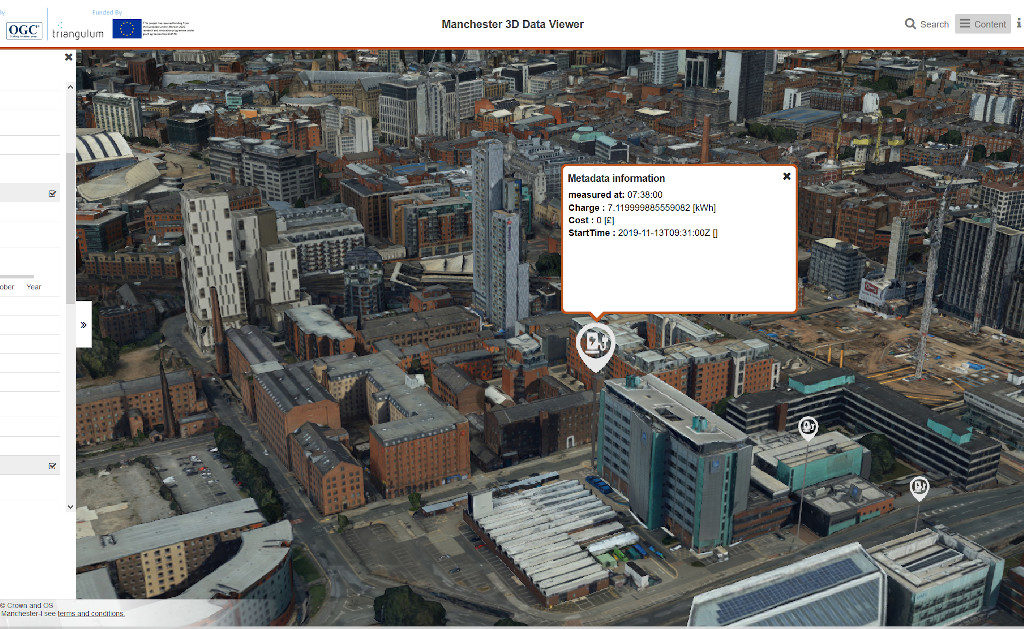The Open Geospatial Consortium (OGC), Ordnance Survey (OS), and Triangulum are proud to announce that Claus Nagel and Thomas Adolphi of virtualcitySYSTEMS have been chosen as the winning team of the 2019 CityGML Challenge.
As the winners of the Challenge, the developers were awarded a £5000 prize and were able to showcase the tool at OGC’s recent Technical Committee meeting in Toulouse, France.
The CityGML Challenge was conducted under OGC’s Innovation Program, a collaborative, agile, and hands-on prototyping and engineering environment where sponsors and OGC members come together to address location interoperability challenges while validating international open standards.
The Challenge tasked software developers to configure visualisation software tools to support the capabilities of CityGML version 3, including dynamic data feeds from a range of sensors. The winning entry was chosen because it provided the most comprehensive data integration environment, 3D analysis tools, and the integration of a variety of other OGC standards.
OGC’s CityGML standard is an open data model and format for the storage and exchange of virtual 3D city models. The challenge focused on the city of Manchester, UK. OS is supporting Manchester City Council in the delivery of the European Commission funded Triangulum project, and has collated a range of data resources relating to the geography of Manchester’s Oxford Road Corridor in the form of a data model in the draft CityGML 3 standard.
“The judges were impressed by the functionality of the application: how rich and varied datasets came together and are instantly usable, and that a number of other OGC standards, including the SensorThings API and the transactional Web Feature Service (WFS-T), were implemented. Making the application available for the coming 12 months will provide the Manchester and OGC communities a platform on which CityGML v3 can be showcased as a standard that facilitates data integration in the urban environment”
Panel judge Carsten Roensdorf, Strategic Product Manager at Ordnance Survey
The winning tool and visualisation environment will be openly available for one year for wider experimentation and innovation purposes.
“Our entire virtualcitySYSTEMS team is very grateful and proud to have been recognized as the winner of the OGC CityGML Challenge. To be part of this OGC challenge was truly challenging, but a wonderful experience. Diving into all these data, preparing them, and making them interoperable in one environment and in a standardized way was fantastic. We strongly believe in open standards to improve collaboration and decision-making at all levels, and we are building our applications on top of the geospatial standards from OGC. This is in our company DNA – so thanks to OGC for supporting us and all our fellows on this way”
Claus Nagel, CTO at virtualcitySYSTEMS
CItyGML has been successfully used in a number of city models in cities as diverse as Rotterdam, Singapore, and Chongqing. OGC has been working on CityGML version 3 for some time. The draft CityGML 3 data model and encoding are publicly available on GitHub and are now being validated in implementations.
Key changes between CityGML 3.0 and previous versions include:
- a cleaner distinction between the conceptual model and encoding;
- flexibility to model indoor structures in different Levels of Detail;
- dynamic data handling as part of the standard, rather than an extension; and
- better modelling of the spaces that people use, as well as the ‘concrete.’

